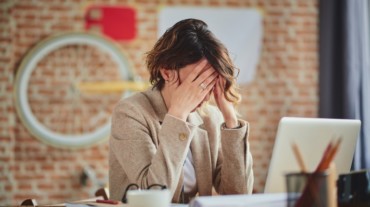
We’ve all fallen prey to peer pressure. The only difference is that some of us got under bad influence, and a lucky few got a friend circle that always has their back. But in both cases, peers put undue pressure on us, and let’s just say it aloud, it has a negative impact on our mental health.
Peer pressure has a very powerful impact on your mind, because you want to fit into the lot. Of course, no one wants to be an outcast. You want your peers to admire, accept, and not make fun of you. To mingle well with them, you get tied to that one common thread that keeps them together.
Just like what Rachael did in the famous sitcom Friends. When she gets a job, she finds out that her boss and colleague smoke, and make all the important decisions during that time. So, she also joins them to not get left out.
1. Spoken – When the peer influences you by suggesting or persuading.
2. Unspoken – When you identify certain traits about the group.
3. Positive – These are basically positive influences that may be spoken or unspoken.
4. Negative – Here you tend to pick up bad habits that run in your group.
5. Direct – This can be both spoken and unspoken, but generally it is so visible that you quickly understand things.
6. Indirect – This one also has a strong influence, but it seeps in very subtly.

According to Dr Rahul Khemani from Wockhardt Hospital, Mumbai, peer pressure can make an otherwise normally self-confident person doubt who he/she is and can impact his/her self-esteem.
It is pretty obvious that when you are under pressure to be a part of something, you constantly think about it. Of course, this wavers your concentration, and the impact shows on your productivity.
Extreme forms of peer pressure can lead to bad habits such as smoking, alcohol consumption, risky behaviors, and so on. This will not just mess up with your health, but also your mental well-being.

“Peer pressure makes you feel ashamed about your family and background. People end up feeling bad or ashamed about themselves, and their families when they see disparity in how things are in their lives, and how things are among their peers. This sort of comparison is not only restricted to financial matters, but also spills into relationships between parents, siblings, degree of liberty, values, and traditions and so on. This abrupt cutting off from the family can make them anxious, and they can be pushed into depression in the longer run,” warns Dr Khemani.
Everyone wants friends and wants to be accepted. But when the pressure from peers increases, then just to please them or to be a part of their circle, you tend to do things that you don’t want to. It is because of this that you pretend to be happy, which is not a sign of great emotional health.
Consequences such as bullying, isolation, and rejection make it difficult for a person to say no to their peers. That’s why we want you to be armed with proper techniques to deal with such a situation:
Select Topics of your interest and let us customize your feed.
PERSONALISE NOW1. Practice your responses beforehand
2. Bring a friend
3. Plan a safety phrase with a friend or family member, if you feel trapped in a situation that makes you feel uncomfortable
4. Listen to your instincts
5. If you face peer pressure problems, talk to a grown-up you trust, say a parent, friend, or a professional counselor.
So ladies, don’t feel the pressure, but deal with it.